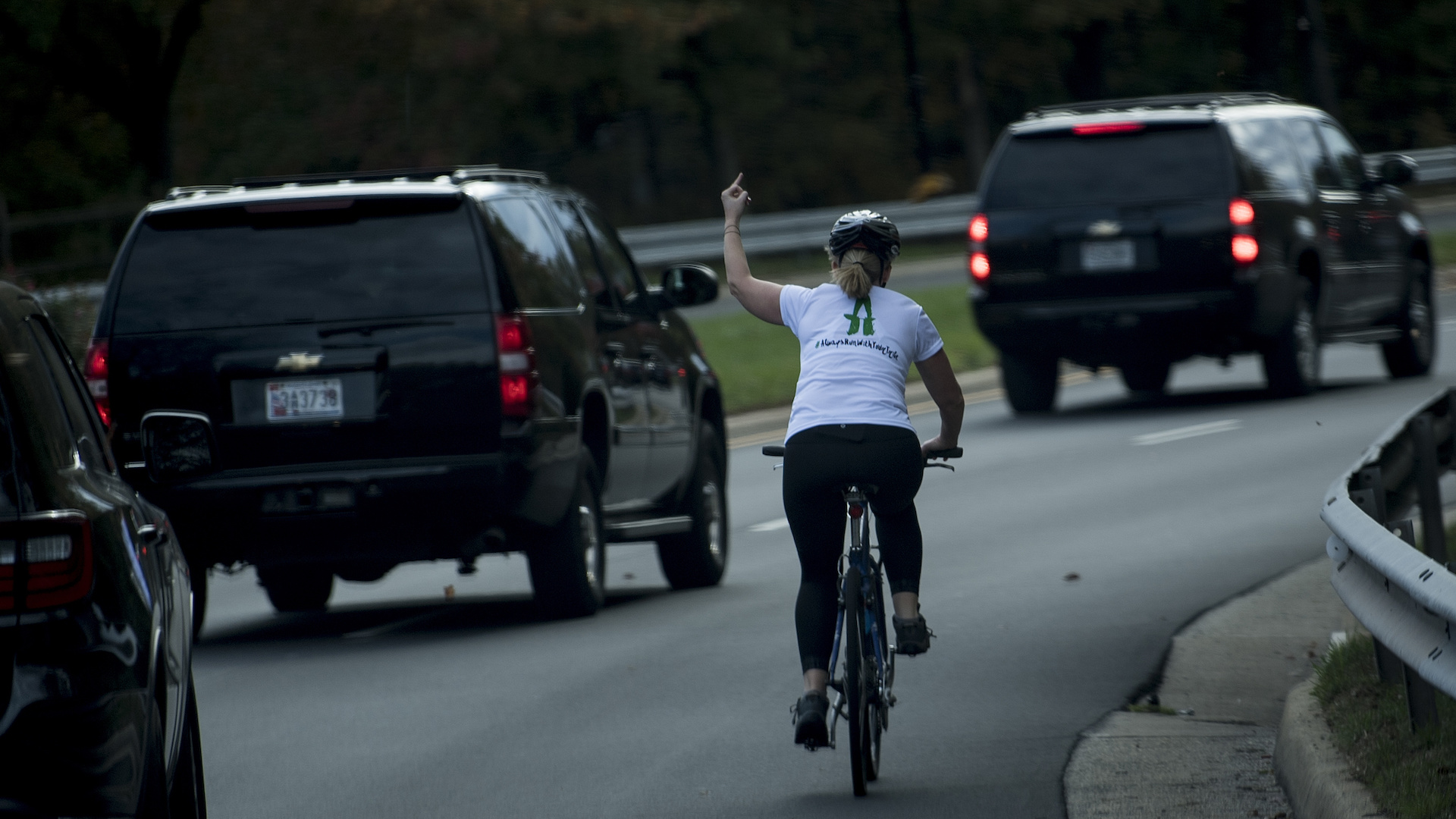

We may earn revenue from the products available on this page and participate in affiliate programs. Learn more ›
Flipping one’s middle finger is now federally protected as freedom of speech under the first amendment, all because of an uncivil traffic stop.
In 2017, Michigan resident Debra Cruise-Gulyas was driving through Taylor, Michigan when she was pulled over by Officer Matthew Minard of the City of Taylor Police Department. Officer Minard issued Cruise-Gulyas a ticket for an unspecified, minor violation, after which Cruise-Gulyas reportedly expressed her distaste for the ticket by giving what the court described as “an all-too-familiar gesture at [Officer] Minard with her hand and without four of her fingers showing.”
“That did not make Minard happy,” said the court, which stated that Officer Minard then pulled over Cruise-Gulyas a second time, this time escalating the ticket to a moving violation—a more serious offense in Michigan. Cruise-Gulyas took the incident to court, alleging that Officer Minard in ticketing her for her gesture had violated her right to freedom of speech and protection from unreasonable search and seizure. On Wednesday, a federal appeals court ruled 3-0 in Cruise-Gulyas’s favor, stating that Officer Minard “should have known better.”
“Fits of rudeness or lack of gratitude may violate the Golden Rule,” stated Circuit Judge Sutton. “But that doesn’t make them illegal or for that matter punishable or for that matter grounds for a seizure.”
Cruise-Gulyas’ lawsuit against Officer Minard has not concluded and will proceed with regard to a “substantive due process claim under the 14th Amendment.”
Though one-finger salutes may now be a federally protected act of speech, this ruling only offers citizens formal protection from governmental backlash. Making the gesture in the wrong situation or to the wrong person may have consequences from which no rights can protect you—like public, viral humiliation.
